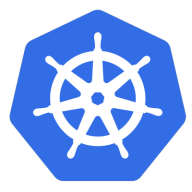

Google Kubernetes Engine and Kubernetes compete in the container orchestration platform category. Google Kubernetes Engine appears to have the upper hand due to its managed services and ease of deployment, though Kubernetes offers notable flexibility and community support.
Features: Google Kubernetes Engine provides extensive managed services to ease deployment, support for autoscaling, and seamless integration with Google's ecosystem. Kubernetes, being open-source, offers flexibility across various platforms, scalability with microservices, and strong community support.
Room for Improvement: Google Kubernetes Engine could improve cost management, integrations for monitoring, and application-level security. Kubernetes could benefit from more built-in tools for security, simpler integration options, and reduced configuration complexity.
Ease of Deployment and Customer Service: Google Kubernetes Engine is predominantly deployed in public cloud environments, noted for easy integration but faces criticism in support services compared to AWS. Kubernetes offers flexible deployment across hybrid, private, and public clouds but requires expertise for effective management, with users often relying on community forums for support.
Pricing and ROI: Google Kubernetes Engine costs are based on cloud usage and machine specifications, offering a competitive pricing model, yet can be high for complex use cases. Kubernetes, being open-source, incurs no licensing costs but can have hidden management and support costs. Both can yield positive ROI, with GKE's managed services offering operational efficiency, while Kubernetes provides cost-effectiveness when managed effectively.
By migrating from AWS to Google Cloud Platform, we have saved a lot of time and money.
What earlier required manual coordination and took thirty to forty minutes per release is now usually completed within ten to fifteen minutes.
We receive revenue and returns from its deployment due to improved services and applications.
I have seen a return on investment, and the metrics in return for the investment are very fast.
In addition to official support, Kubernetes community ecosystem is very strong.
The application is stable, and I seldom require support.
The autoscaling capabilities of Google Kubernetes Engine have significantly impacted our operations.
Overall, Kubernetes gives a lot of flexibility to handle growth and spikes without re-architecting the system.
Kubernetes is highly scalable, earning a rating of eight out of ten.
By using horizontal pod autoscalers, Kubernetes automatically adjusts the number of pods based on CPU, memory usage, or other metrics.
If I have 100 replicas of containers and the traffic suddenly pushes to 1,000 within a fraction of a second, the selected machine type must be fast.
As long as best practices are followed, such as proper resource limits, health checks, and monitoring, Kubernetes provides a stable foundation for production workloads.
Our organization performs robust testing before sending changes to production, ensuring the stability of Kubernetes in live environments.
Kubernetes offers high stability, allowing for easy scaling of ports and containers.
When looking at the web interface, it feels kind of slow due to the many features involved.
Log observability could be made easier so someone from high school can use it without having technological expertise.
It would be helpful if I could easily find log information in a particular namespace without needing to write certain labels.
Kubernetes is a very mature and reliable platform, and the benefits clearly outweigh the limitations for most production use cases.
Improved documentation would help in gaining scalable knowledge and making it more understandable.
After the upgrade, some pods were not up as expected, leading to downtime.
Instead, we only pay for the hardware we use, which results in cost-cutting.
Google is considered cheaper compared to AWS, making it suitable for smaller to medium companies concerning cost.
The on-demand nodes are quite expensive.
Kubernetes itself is open source and free, so there is no licensing cost for the software.
Since we use Kubernetes on-premises, the costs are related to our expertise and the personnel we hire.
the setup costs are high.
The most valuable aspect of Google Kubernetes Engine (GKE) is its managed nature, which significantly reduces the burden on our platform team.
The best advantage of Google Kubernetes Engine is that it manages Kubernetes for you, making everything related to the master nodes managed for you with automatic updating and upgrading.
GKE is easier to understand and use than Elastic Kubernetes Service.
Kubernetes also offers rollback control and auto-scaling capabilities, which are crucial for maintaining an application's availability even if nodes or pods go down.
The feature that stands out most for me is self-healing. If a pod crashes or a node fails, Kubernetes automatically recreates the pod and maintains the desired state.
For us, having fast storage classes is very important.
| Product | Market Share (%) |
|---|---|
| Kubernetes | 6.9% |
| Google Kubernetes Engine | 2.4% |
| Other | 90.7% |

| Company Size | Count |
|---|---|
| Small Business | 21 |
| Midsize Enterprise | 6 |
| Large Enterprise | 16 |
| Company Size | Count |
|---|---|
| Small Business | 26 |
| Midsize Enterprise | 10 |
| Large Enterprise | 47 |
Kubernetes Engine is a managed, production-ready environment for deploying containerized applications. It brings our latest innovations in developer productivity, resource efficiency, automated operations, and open source flexibility to accelerate your time to market.
Kubernetes (K8s) is an open-source system for automating deployment, scaling, and management of containerized applications.
It groups containers that make up an application into logical units for easy management and discovery. Kubernetes builds upon 15 years of experience of running production workloads at Google, combined with best-of-breed ideas and practices from the community.
We monitor all Container Management reviews to prevent fraudulent reviews and keep review quality high. We do not post reviews by company employees or direct competitors. We validate each review for authenticity via cross-reference with LinkedIn, and personal follow-up with the reviewer when necessary.